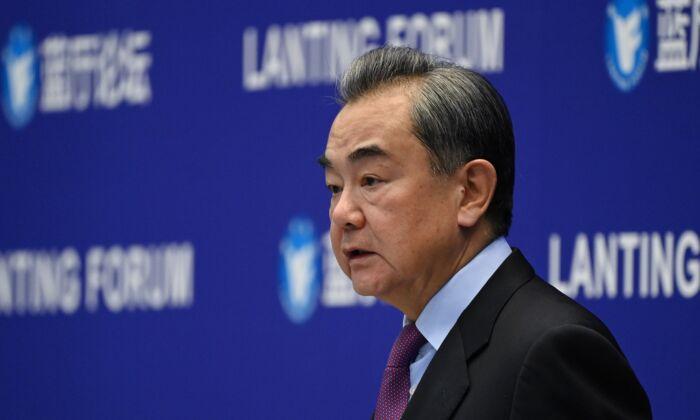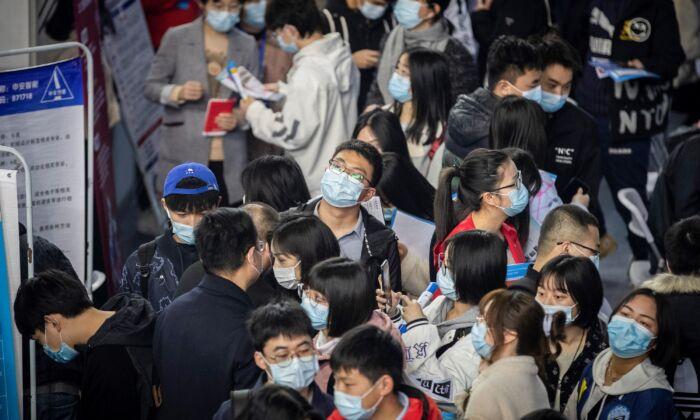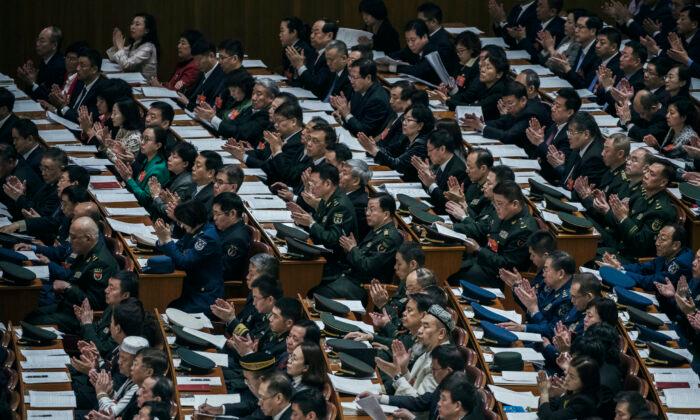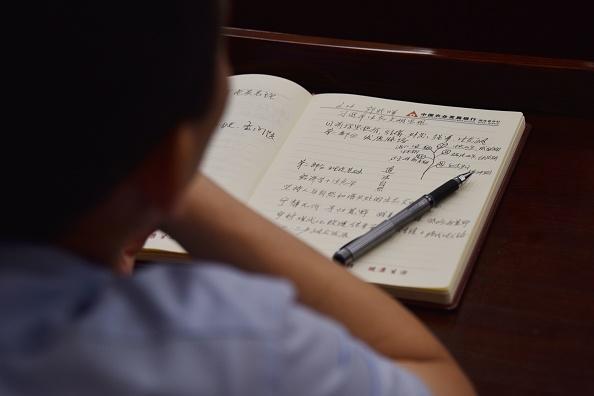There was no doubt that the U.S.-China talks, which began on March 18, would be very difficult despite the Chinese Communist Party’s (CCP) Ministry of Foreign Affairs, repeatedly calling it a “high-level strategic dialogue.” However, as soon as the talks began, the Chinese Foreign Ministry immediately changed its tone from dialogue to confrontation.
The open clash completely exposed the lie the CCP spread to its domestic audience that this was a so-called “China-U.S. high-level strategic dialogue.”
The ‘U.S.-China High-Level Strategic Dialogue’ Is Falling Apart
At the Chinese Foreign Ministry press briefing, a CNN reporter asked: “China has said that the U.S. side gravely exceeded the time limit in their opening remarks and broke diplomatic protocols, which is no way to welcome guests. So why did China accuse the U.S. of gravely exceeding the time limit?”Zhao didn’t respond to the question directly, but described the opening session as “fiery and theatrical,” and said the U.S. side “wantonly attacked China’s domestic and foreign policies, provoking disagreements.”
Whether or not the United States exceeded the time limit was not the issue, it was the Americans making critical remarks that agitated the CCP.
The CCP insisted on the meeting, and had specifically referred to it as a “high-level strategic dialogue,” which the U.S. side did not do. Now, presumably with the approval of the top leaders, Yang Jiechi and Wang Yi made a ”fiery” play as the CCP’s wolf warriors.
From the “high-level strategic dialogue” to the abrupt “fiery” display, the CCP’s propaganda media was forced to shift its tone—from originally improving U.S.-China relations to lashing out at the United States.
After the intensive four-party talks between the United States, Japan, India, and Australia, and the U.S.-Japan and U.S.-Korea 2+2 talks, the CCP may realize that there is little hope to improve U.S.-China relations, and rather only greater pressure.
Behind the Abrupt Change in Tone of the CCP’s Media Outlets
CCP media rarely report serious diplomatic disagreements, and mainly focus on praising the leadership and the CCP’s achievements.The direct exposure of such fiery moments is extremely out of character for them. It completely disrupts the CCP’s conventional practices and protocol. And therefore, it reveals the significance of the U.S.-China bilateral relationship to the CCP high officials.
Other mainland were quick to reprint and repost the reports.
At the Chinese Foreign Ministry press conference the CNN reporter also asked Zhao, “China’s state media and social media have given a lot of coverage to what the Chinese delegation said, including with eye-catching big-character posters. So I wonder if the Chinese side had domestic audience more in mind when making these statements?”
Is the CCP Ready for Open Confrontation With the United States?
Zhao said at the press conference that the Chinese delegation “were chilled by the biting cold. ... We hope the U.S. can meet China halfway.”Zhao’s remarks highlighted the CCP’s weakness.
In the report, “Yang Jiechi Explains China’s Position in His Opening Remarks of China-U.S. High-Level Strategic Dialogue,” Xinhua falsely stated, “the China-U.S. High-Level Strategic Dialogue is an important initiative implemented with the consensus of the two heads of both countries through their phone call, and it was also decided by the two heads personally.”
But it was not covered in the call between Biden and the head of the CCP Xi Jinping on February 10.
The report said that the CCP “hope[s] this dialogue will be sincere and frank.” Evidently, the CCP was baffled by the American side speaking sincerely and frankly.
The Xinhua report was supposed to state the CCP’s position, but instead reiterated the contents of the CCP’s two sessions. It ended with the statement that “Chinese people are more closely united around the CCP Central Committee with Xi Jinping as the core.”
The report said in Yang’s opening remarks that he does not think “the overwhelming majority of countries in the world would recognize that the universal values advocated by the United States or that the opinion of the United States could represent international public opinion, and those countries would not recognize that the rules made by a small number of people would serve as the basis for the international order.”
He said, “The United States is not qualified to speak to China in a condescending way, and the Chinese refuse to take it.”
Wang’s statement, as reported by Xinhua, went one step further, saying that “China certainly in the past has not and in the future will not accept the unwarranted accusations from the U.S. side.”
All other mainland media outlets were quick to echo Xinhua’s propaganda that the CCP was making a stand to compete with the United States for supremacy, or at least to be on an equal footing.
The CCP’s state-run media have said a great deal on behalf of Yang and Wang. It should not be difficult for them to continue to play tough, but who will bear the consequences? The CCP can certainly blame the United States again, however, will it really solve the dilemma the CCP’s top leaders face?






Friends Read Free